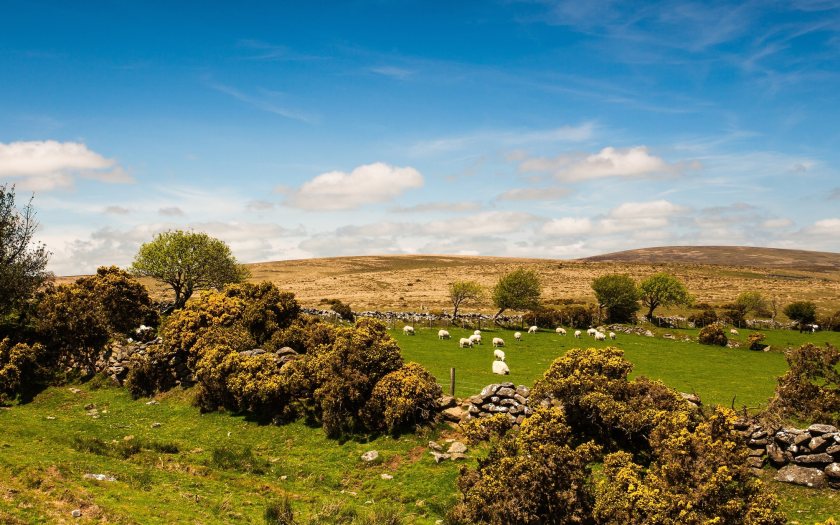
The NFU has hit back at environmental campaigner Chris Packham after he described England’s uplands as “dying” and claimed sheep are “destroying” Dartmoor National Park.
In a strongly worded article for The Guardian, Mr Packham wrote: “Britain’s uplands are dying. What should be some of the very best places for nature are the absolute worst.
"Across vast tracts of some of our most beautiful landscapes, life is rapidly ebbing away. Where once there was purple heather, bilberry and buzzing insect life, there are now over-grazed, sheep-infested ecological disaster zones. For a nation of nature lovers, it’s a disgrace.”
In response, Mat Cole—a Dartmoor hill farmer and chair of the NFU’s Uplands South—penned a passionate letter to the paper, stating he “couldn’t disagree more” with Mr Packham’s portrayal of the landscape he works daily.
“After a day tending the sheep and cattle on our Dartmoor hill farm, looking over the sphagnum moss in full bloom and the heather starting to turn its regal purple, I couldn’t disagree more with Chris Packham’s views on the land,” Mr Cole wrote.
He disputed Mr Packham’s suggestion that upland farming harms biodiversity, pointing out that livestock density is modest—just 0.3 animals per hectare during the summer, including ponies.
Far from being barren, he argued, these landscapes are biodiverse environments shaped and sustained by generations of farming.
Mr Cole also challenged the claim that upland farms do not contribute to food security, highlighting that around 40% of England’s breeding sheep are kept in upland areas. “They are a vital contribution, particularly as we face global uncertainty,” he said.
He went on to detail collaborative efforts through the Dartmoor Landscape Management Group, and cited his own rewetting of 500 acres of moorland—not as a “box-ticking exercise”, but as a genuine investment in environmental recovery and long-term public value.
While acknowledging the need for change, Mr Cole pointed to the NFU’s newly released vision for the uplands, which outlines a sustainable future where nature and farming can thrive side by side.
He emphasised the need for agri-environment schemes that fairly reward the public goods upland farmers deliver—such as biodiversity, carbon storage, and cultural heritage.
The article comes as the NFU continues to engage with government ministers to highlight the value of upland farming to the UK’s food production, biodiversity, and rural heritage.
NFU Deputy President David Exwood also criticised Mr Packham’s remarks, calling them “a deeply misleading picture of upland farming”.
“Upland farmers play a vital role in supporting food security, enhancing biodiversity, and sustaining rural communities,” Mr Exwood said. “Livestock grazing has shaped and maintained these landscapes for generations.”
He added that the NFU’s uplands strategy lays out how such farms support the environment, food systems and the rural economy—while also identifying the policy framework and investment needed to secure their future.
“We’ll continue working with stakeholders to promote this positive, evidence-based view and challenge outdated narratives like Mr Packham’s,” he said.
